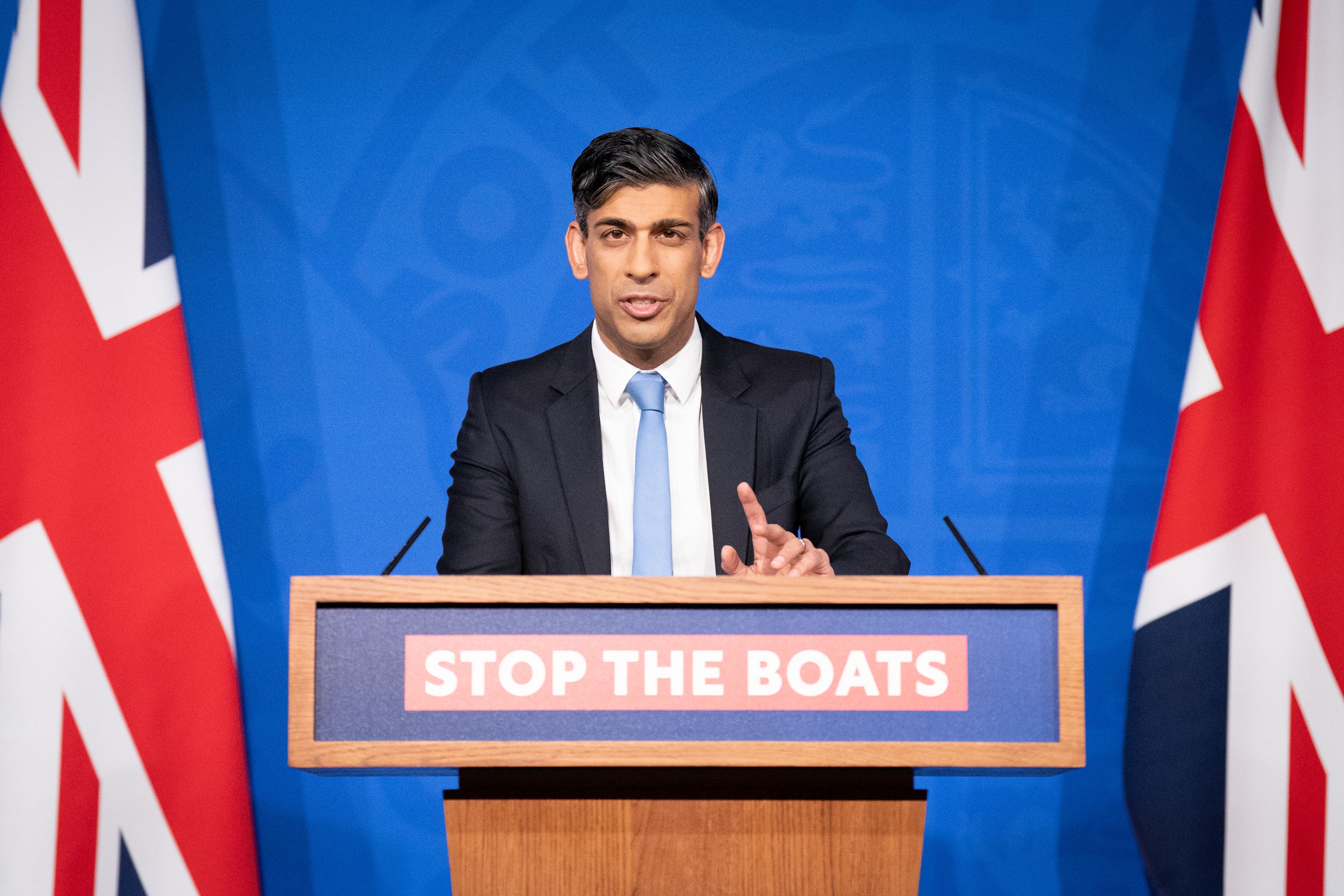Sunak braced for Rwanda debate in Lords as critics line up to speak
Some 71 members of the upper chamber including Archbishop of Canterbury Justin Welby are due to speak at the second reading debate of the draft law.

Your support helps us to tell the story
From reproductive rights to climate change to Big Tech, The Independent is on the ground when the story is developing. Whether it's investigating the financials of Elon Musk's pro-Trump PAC or producing our latest documentary, 'The A Word', which shines a light on the American women fighting for reproductive rights, we know how important it is to parse out the facts from the messaging.
At such a critical moment in US history, we need reporters on the ground. Your donation allows us to keep sending journalists to speak to both sides of the story.
The Independent is trusted by Americans across the entire political spectrum. And unlike many other quality news outlets, we choose not to lock Americans out of our reporting and analysis with paywalls. We believe quality journalism should be available to everyone, paid for by those who can afford it.
Your support makes all the difference.Rishi Sunak is braced for further battle in the Lords over his Bill to revive the Government’s Rwanda scheme as the legislation faces scrutiny from a number of prominent critics.
Some 71 members of the upper chamber are expected to speak at the second reading debate of the draft law on Monday.
Among them is the Archbishop of Canterbury, who has voiced profound concerns about the plan to send asylum seekers who cross the Channel in small boats on a one-way flight to Kigali.
Lord Carlile of Berriew, who earlier this month warned the Government is moving towards “totalitarianism” in its handling of the policy, is also due to appear.
The crossbench peer has suggested the Lords would seek to undo what he described as politicians “meddling” in the independent courts.
Mr Sunak’s Safety of Rwanda Bill survived third reading in the Commons after the Prime Minister saw off a Tory rebellion which had sought to toughen the legislation.
MPs on the right of the party largely backed down following speculation that the draft law could be torpedoed unless amendments were made, including to ensure UK and international law cannot be used to block a person’s removal to Rwanda.
In the end just 11 Conservatives voted against the legislation but it faces a bigger test in the Lords, where many members have expressed unease about the plan.
The Prime Minister has urged peers against blocking “the will of the people” by opposing the Bill as he faces an election year having made “stopping the boats” a key pledge of his leadership.
On Monday, the Prime Minister’s official spokesman said: “This Bill is a key part of how we stop violent criminal gangs targeting vulnerable people that has led to too many deaths in the English Channel.
“That is the right thing to do, it is also the fair thing to do both for taxpayers and for those individuals seeking to come here through safe and legal routes who see their place jumped by those who can afford to make crossings on small boats.
“We’ve worked very carefully both on the Bill and the treaty in coordination with the Rwanda government and we continue to believe that this bill is the right way forward to get the flights off the ground and to stop the boats.”
Meanwhile, the number of migrants who made unauthorised Channel crossings of the Channel this year passed 1,000 after more than 300 made the journey at the weekend.
First blood was drawn on the legislation in the Lords last week, when peers backed by 214 votes to 171 an unprecedented move seeking to delay a treaty with the east African nation which forms part of the Government’s plan.
The unelected second chamber backed calls for Parliament to not approve the pact until ministers can show the country is safe – though unlike the Commons, which has the power to delay ratification of a treaty, the Lords can only advise.
We’ve worked very carefully both on the Bill and the treaty in coordination with the Rwanda government and we continue to believe that this bill is the right way forward to get the flights off the ground and to stop the boats
The asylum scheme comes with a £290 million bill but a series of legal challenges has meant no flights have taken off since it was first proposed in 2022, when Boris Johnson was in Number 10.
Under the plan, people who cross the Channel in small boats could be removed to Rwanda rather than being allowed to seek asylum in the UK.
The legislation, along with the recently signed treaty with Kigali, is aimed at ensuring the scheme is legally watertight after the Supreme Court ruling against it last year.